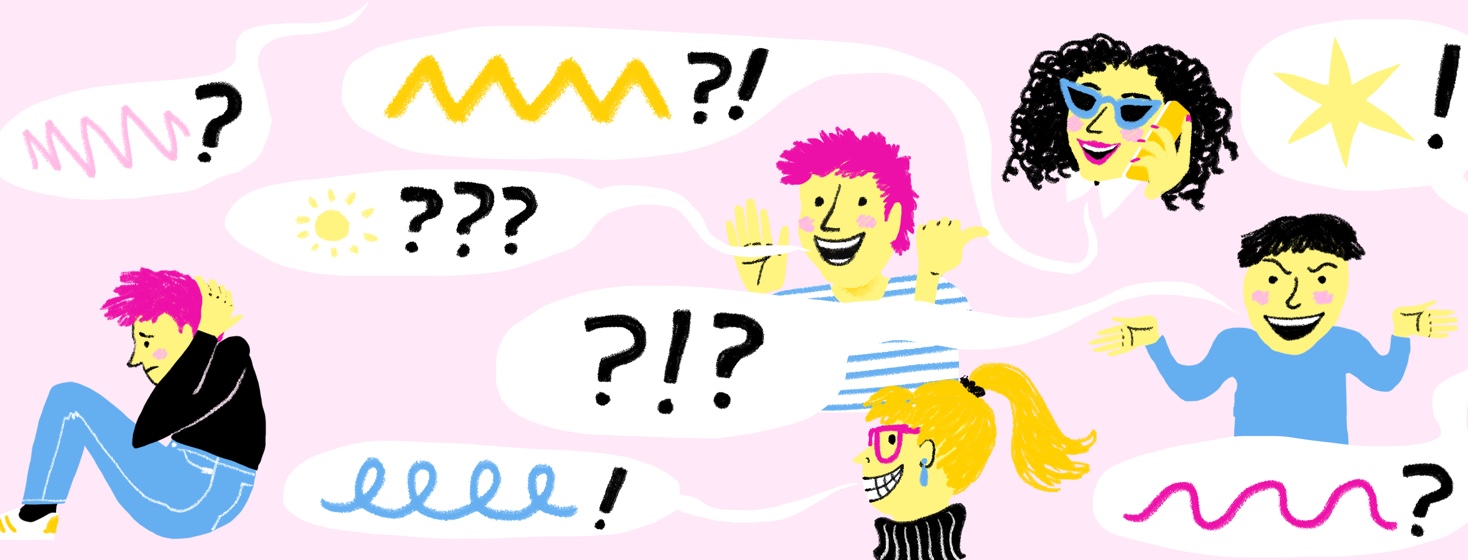Things People Say That Make Me Feel Misunderstood
One of the biggest problems with IBS is that so many people are not aware of it. Moreover, a lot of people, and all the doctors I’ve ever seen, think that it’s “just IBS.” Apparently, it’s not a real illness. Nothing to worry about! And they don’t understand why it affects me so much.
There are a couple of things people say that always make me feel very uncomfortable. Like they don’t understand, or don’t believe that I actually have a real illness.
“We made you a special plate because you don’t like onions”
… or any other trigger food, really.
It’s so nice when people remember my triggers and make the effort to cook food that I can eat. But why do they have to make me feel unreasonable? I want them to know that I’m not voluntarily complicating things, and I would never dare to ask for special treatment if I didn’t have to.
Telling me that I don’t like the foods takes the same amount of time as saying that I can’t have them. It’s just one word, but it would make such a difference to me!
I know it’s not that important, but I would love people to understand that IBS is not a choice. Whenever they say things that make it seem like it is, I always feel the need to justify myself. And at the same time, I feel so bad for getting annoyed because they’re making an effort for me.
“Aren’t you tired of eating the same foods all the time?”
Maybe I am. Maybe I wish that I could eat a pizza, or spicy foods, or even have normal yogurt with lactose in it. But you know very well that I can’t, so why do you feel the need to remind me of that?
I’m not going to lie, most of my close friends and my family never ask me this question. But there are some people who just keep telling me this over and over again! And every time they do, I have to explain (again) that I would love to eat everything else but I can’t.
“Let’s go out for breakfast/brunch!”
I don’t mind if people whom I don’t know very well invite me to go out to eat in the morning. They don’t know me and my IBS well enough to understand why this would be a bad idea. And honestly, I don’t really mind explaining.
But one of my best friends keeps asking me this same question every time we make plans to see each other. And that I don’t get.
I’ve told her about my IBS and how difficult mornings are for me. I’ve declined breakfast/brunch invitations approximately a hundred times, telling her that breakfast is just not the meal for me. And still, it always comes up again. Will I be explaining my morning IBS for the rest of my life?
“Why can’t we just plan this in advance?”
People asking why I’m so reluctant to make plans in advance is one of the hardest situations for me. In comparison, everything related to trigger foods is quite easy to explain. If I eat that food, I’ll get sick, so I prefer not to eat it. People get that because everyone has foods they don’t digest too well.
But explaining my anxiety is really hard for me. Saying that I don’t want to make plans because if I do, my anxiety will grow with every passing day and result into a full-blown flare-up on the day we made plans just doesn’t sound very logical. I feel silly saying it out loud, and I don’t want others to think that I’m being ridiculous.
Anxiety is not logical – it’s quite the opposite. There is nothing to worry about, and yet you freak out anyway. I always try to find some other excuse to mask the real reason. And if I can’t think of anything, I’ll agree to make plans, knowing that I can always cancel at the last minute if my IBS gets too bad.

Join the conversation